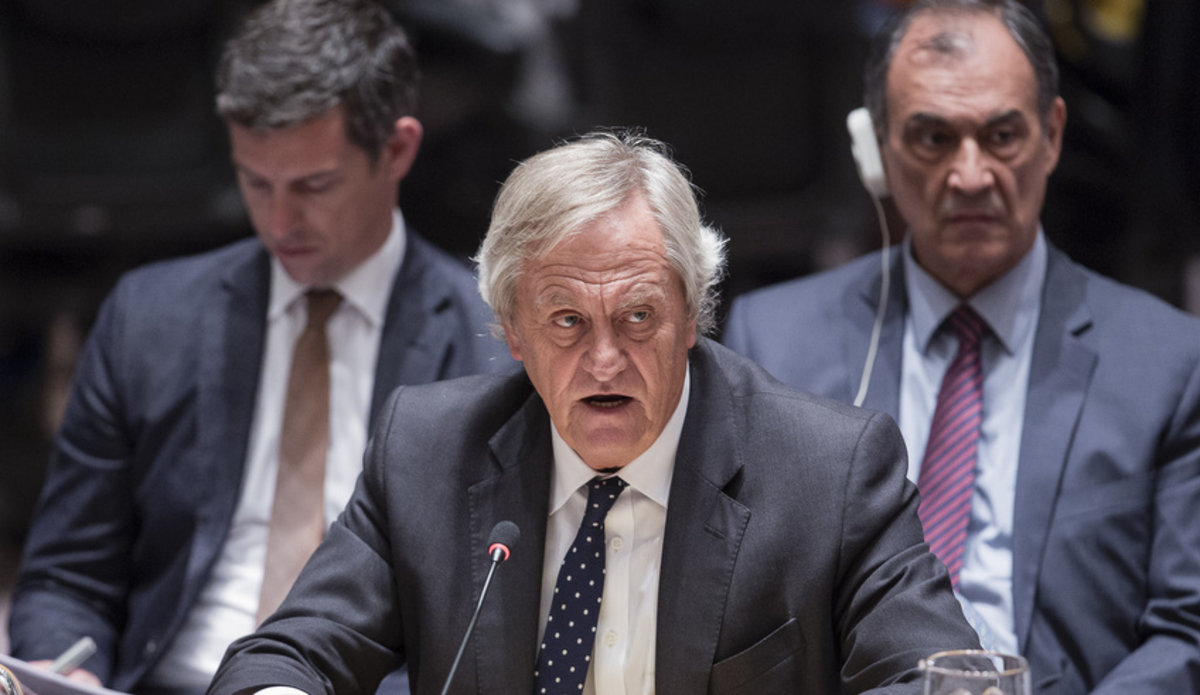Imperative for Afghanistan to make progress on economy and security, says UN envoy
NEW YORK - Progress on the economy and improving security is imperative so that Afghans have confidence in their government, said Nicholas Haysom, the UN Secretary-General’s Special Representative for Afghanistan, in a briefing to the Security Council today.
On the security front, said the UN envoy, there has been a deliberate response by the Afghan security forces to the lessons learned from the dynamics and developments of last year, with the battlefield in many areas in a state of flux, with gains and reversals but with neither side effecting clear dominance.
“The security forces continue to face serious challenges, including in addressing questions of morale, leadership, attrition and logistics,” said Mr. Haysom, who is also head of the UN Assistance Mission in Afghanistan. “For now, though, they are holding their ground.”
Mr. Haysom said he remains concerned about the impact that the high level of violence is having on the civilian population.
“There has been no let-up during Ramadan, during which period there have been some reports of disturbing brutality, including attacks on worshippers,” he said. “I am especially concerned about the trend of targeted attacks on civilians working in the judicial sector, and on journalists.”
The UN envoy noted there is a risk that the conflict may enter a new phase that could see retaliatory acts of vengeance and an escalating spiral of violence.
On the economic front, Mr. Haysom noted there has been progress in revenue collection and in developing thoughtful medium-term plans for reform. The UN envoy praised the establishment by President Ghani of the High Council of Governance, Justice and Anti-Corruption, among other initiatives, as a positive step toward demonstrating results in the everyday lives of Afghans.
Regarding the establishment of a viable peace process, with the failure so far of the Quadrilateral Coordination Group to midwife such a process, and the recent death of Taliban leader Akhtar Mohammad Mansour, the UN envoy said such a process “seems unlikely” in the short term.
“We believe, however, that there are elements within the Taliban movement who are questioning whether they can win militarily, at least in the short term, and wonder whether a purely military goal is desirable,” he said, stressing that peace is not a luxury, but a necessity, without which Afghanistan is not sustainable.
“I am disappointed that there has been not yet any traction on peace efforts, but remain optimistic that such a process will eventually emerge,” he said.
Looking forward, UNAMA’s chief said Afghans can meet the challenges that confront them: “It is possible for Afghanistan not only to survive in 2016, but to grow stronger as a result.”
Read Nicholas Haysom's briefing to the UN Security Council.
Listen to audio of Nicholas Haysom's briefing to the UN Security Council.
Watch a video with highlights of Nicholas Haysom's briefing to the UN Security Council.
Read Security Council Resolution 2274 (2016).
 UN
UN







